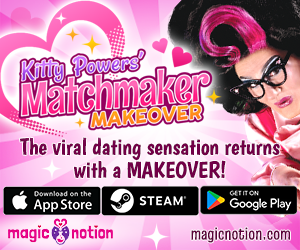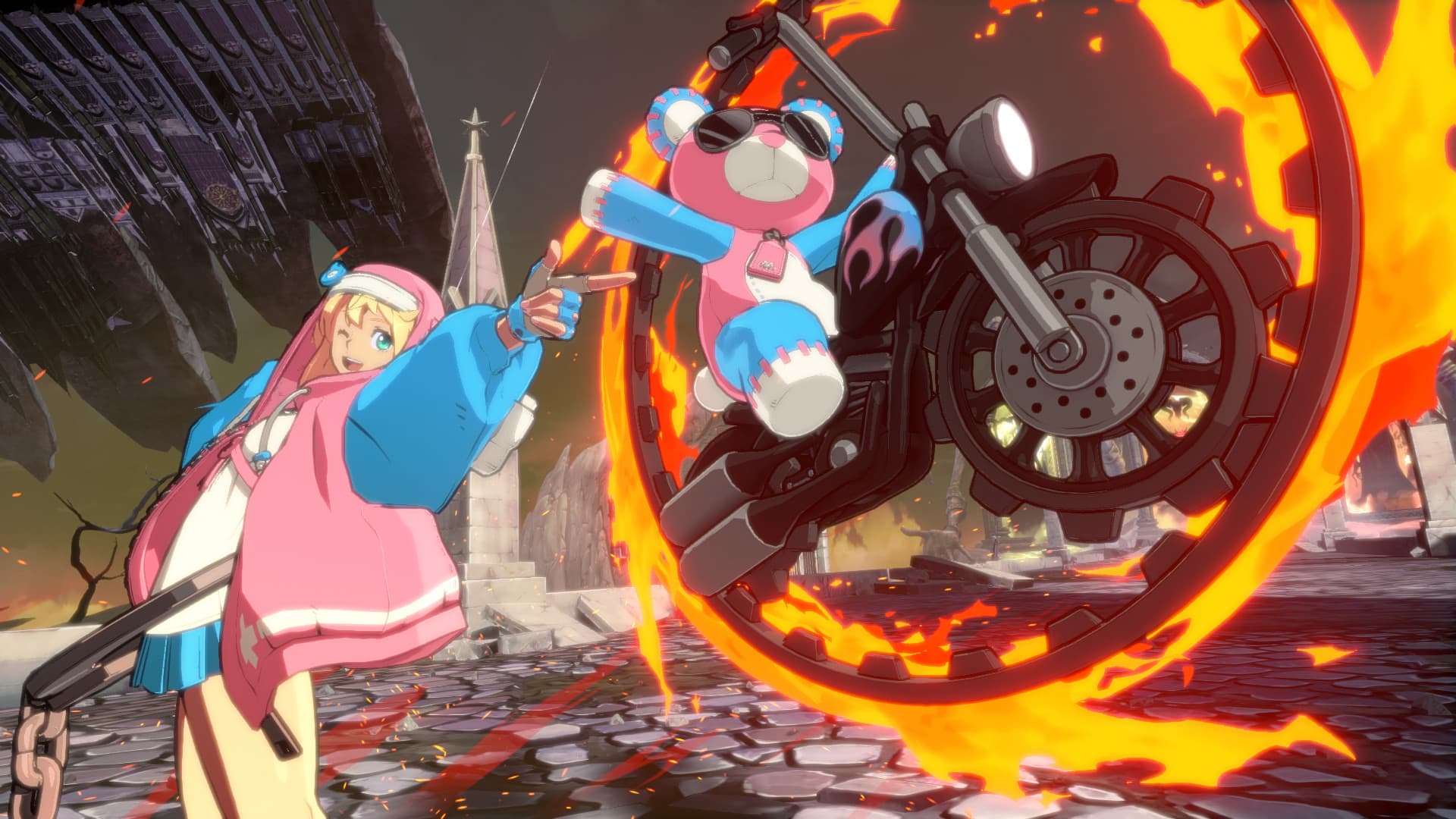
Why does queerness invite gamers to new video games?
Way back in 2021, it was announced that fan-favourite Bridget would be joining the latest entry in the fighting game series, Guilty Gear Strive – a game with a lore denser than even Kingdom Hearts.
The arrival of Bridget was significant for a couple of reasons, the first being that it was her first appearance in a non-spinoff game since her debut in Guilty Gear XX, which was 20 years ago now. But the obviously more important reason is that her reintroduction did something few games in the AAA sphere have done before: it canonised her as a trans woman.
Like Birdo from Mario or Poison from Street Fighter before her, Bridget comes with a whole heap of issues, many of which stem from sheer ignorance in the writing, but when has being trans ever been uncomplicated? Myself and my queer fighting game friends were obviously ridiculously excited at her arrival, and apparently others were too, as my timeline was flooded with trans, non-binary, and gender non-comforming people saying ‘oh dang, should I play Guilty Gear?‘
The way the addition of a trans character could bring queer gamers to a genre they might not otherwise have looked at interested me. It led me to wonder: how many times has the queer gaming community picked up a game just because of the LGBTQIA+ aspects or themes, regardless of their lack of interest in the genre? So I spoke to a number of queer gamers to find out more.
Unsurprisingly, Hades was brought up on more than one occasion as a game that drew people’s attention just because of the queer moments. For Matt, editor of The Game Informer Show, Hades wasn’t a game they would normally pick up due to it being a roguelike, as they’re not very good at them, normally preferring JRPGs or platformers.
Matt is non-binary and pansexual, and the fact the characters in the game were just themselves without any shame or judgement felt incredibly freeing to them. Not to mention how horny on main everyone was when the game came out, which felt like “a very queer energy” to them.
“I’ve been a fan of Supergiant games since Bastion but I was gonna skip Hades at first,” Matt told me. “Then I saw how hot all the characters were and the genuine queer relationships you could develop and it piqued my interest.”
Matt isn’t alone in being drawn to genres they wouldn’t typically play because of queer aspects. Isabelle is a queer gamer who typically played games like Life is Strange, Gone Home, or Stardew Valley, games that don’t necessarily have easy-going themes, but aren’t overtly violent. Which is why The Last of Us Part 2 was such a departure from what she typically played.
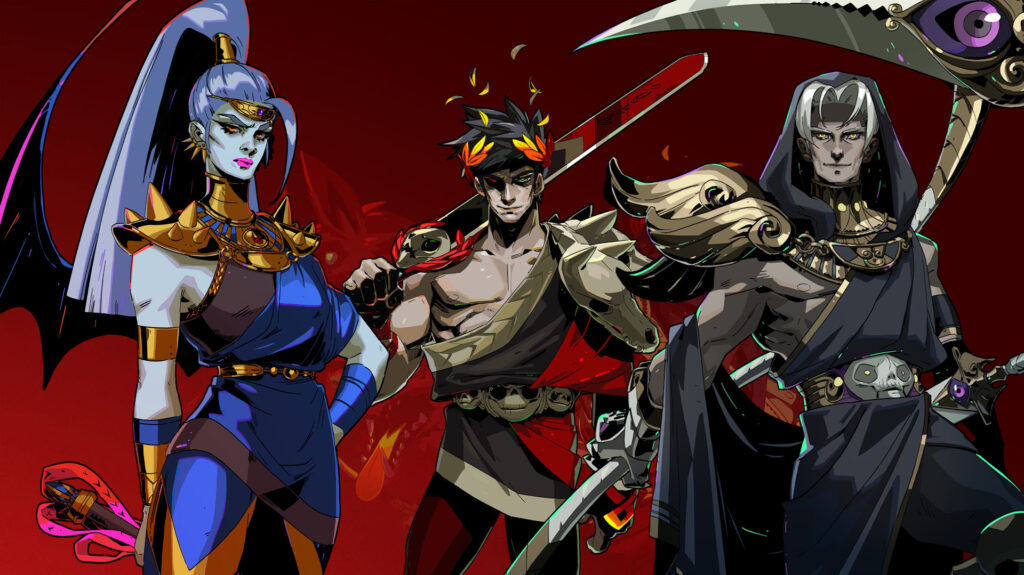
“My brother has always been a big gamer and while I was growing up he was always playing games like Halo, Fallout, and Dark Souls,” Isabelle said. “He would try to get me to play, and when I couldn’t he would either get frustrated or laugh at me.” Isabelle and her brother did later bond over The Witcher 3, where she noted the ability to briefly play as Ciri, a queer woman.
“Those earlier experiences failing at shooters full of buff men made me feel like big action games couldn’t possibly be for me. So when I played The Last of Us Part 2, a combination of Ellie and the accessible difficulty settings made me feel like I could actually play it.”
Ellie being a lesbian who is also “fearless, strong, messy” as Isabelle describes was a big part of why she felt drawn to the character, appreciating the fact that Ellie “gets to have these relationships with women throughout the series while also having really meaningful conflict outside of her queerness.”
It isn’t always just about seeing pre-written characters that can keep players interested though.
While the occasionally toxic community and high difficulty level were something that put off Twitch streamer CtrlAltQuin from playing Souls games previously, Elden Ring being an open world game still managed to draw them in. But it was the character creation and freedom of gender expression that really encouraged them to push on.
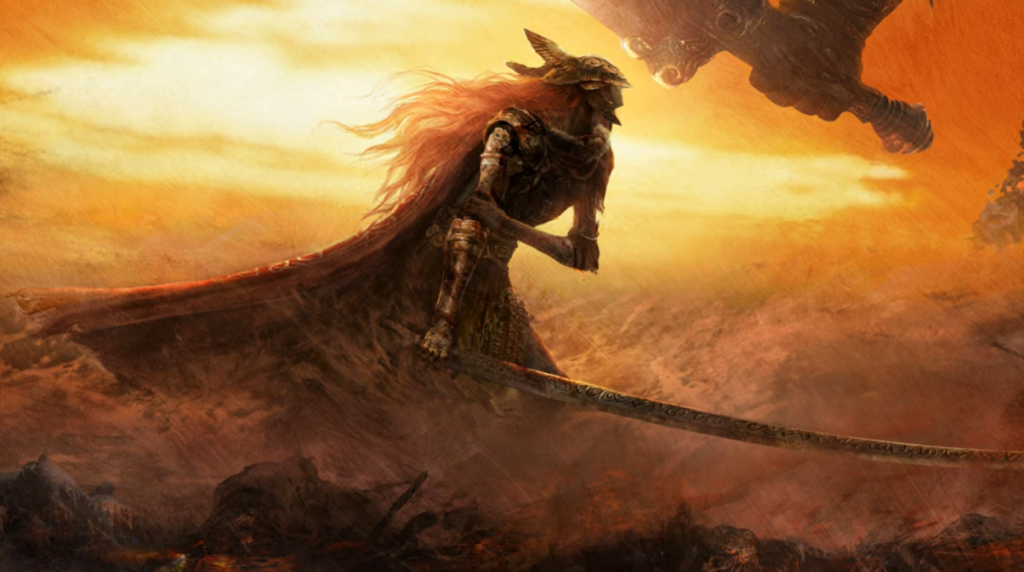
“The game felt extremely genderfluid to me and that made me feel so seen,” said Quin. “I was very surprised by the character creation aspect and how I could create someone who represented me fully as a ‘maidenless’ in that world. My character was very androgynous and I felt like it truly felt like me internally.”
Quin also noted how despite what they’d heard about the community, the messages they found in-game were all very nice, and through streaming the game they met plenty of members of the Souls community that were helpful and kind. The messages in Souls games are an incredibly interesting design choice that can be used in a myriad of ways, and definitely highlight the importance of strong game design.
Of course, game designers are a major part of the gaming community too, like Cesca, a queer game designer and project lead of the tarot-themed Cartomancy Anthology. Growing up, Cesca didn’t have much access to games or consoles, something which, as they put it, is similar of many AFAB. So the games that they gravitated towards were easily available online titles, like Neopets.
In turn, that led to an unfamiliarity with violent games like fighting games or shooters, leading her to feel that she “wasn’t really included in the definition of ‘gamer.'” Because Cesca didn’t engage what are typically mainstream genres, she found herself pulled towards fandom spaces.
“Being a very character and narrative driven player, queer fandom and shipping became a huge part of how I engaged with media and with other players,” said Cesca. “In a gaming landscape where there was a significant lack of any LGBTQ+ representation, this was a way for me to connect with others and engage with games in a way that was approachable. I was reading Final Fantasy fanfiction online and drawing the characters before I even knew it was a games series!”
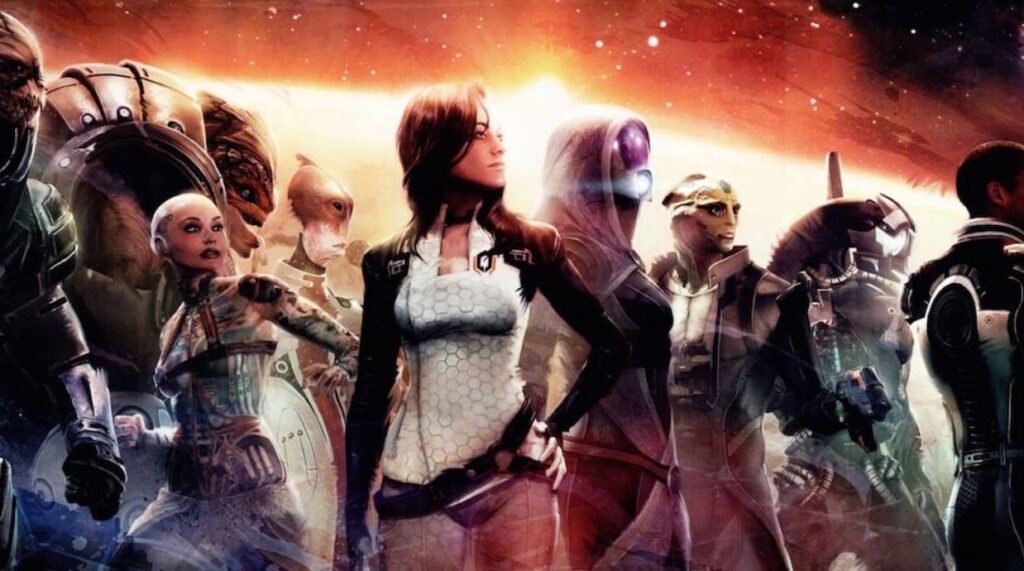
The romance aspect behind shipping within fandom led Cesca to games like Mass Effect due to the sci-fi series including queer romance options, and now Left 4 Dead 2 is one of their favourite games because of fan content about characters Nick and Ellis. These experiences have obviously impacted Cesca’s design work, with them saying they “think it’s immensely important for developers to be engaging with genres they normally wouldn’t as players.”
“As advocates for the player experience, I believe the role of a designer is to understand different player motivations and be able to see the various appeals of different content and genres. If you ask a group of friends why they play a certain game, you’ll always get very different answers from each of them which reflects their play style and interests.” Cesca explains. “We should be taking these different interests, motivations, and player demographics into consideration when we make content so we can be inclusive in our representation and offered play styles.”
Cesca is right, and it’s evidenced by the range of players I spoke to about why they played games they normally wouldn’t have. I myself will always be more interested in something when I know there are textual queer aspects to it, simply because I still don’t get to experience enough queer media.
We all know representation matters, but it’s the ways in which it matters that are the most significant. Isabelle and Quin are brilliant examples of players that tried something new, and it paid off immensely. So if you ever look at a game with a character that resembles you, but it’s not the sort of video game you normally play, maybe you should give it a shot, you just might find something special.
This article was first published in August 2022

